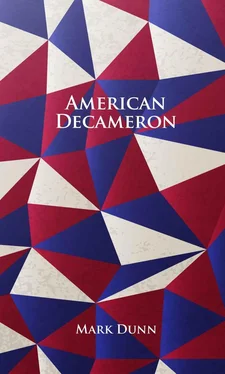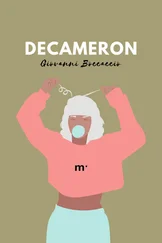Clint and I have a good life, which is made even better by our annual ten-week road adventures with the kids, who are usually game for anything their nutty trailer-touring parents want to do. No, we have never surmounted Pike’s Peak with any of our various rigs in tow, but we have crossed the Continental Divide several times, rig intact, and never burned out a single automobile engine.
No one has ever questioned our taking the kids along — even though it removes from them the opportunity to enjoy the kinds of summer activities usually associated with children their age. Well, no one questioned us, that is, until we paid a visit to Clint’s two half-sisters in Flagstaff last August.
It was inevitable that we would see them after our visit to Grand Canyon National Park. Clint hadn’t been in communication with either of them for almost ten years. Gabby and Gertrude, twelve and fourteen years older than him, respectively, were never close to Clint. In addition to the age difference, there was also the fact that it wasn’t the phenomenally successful prune danish and chocolate bear claw magnate, Overell Dinkman, whom they shared as a parent, but Dinkman’s second wife, Alfreda, who came into the marriage with two daughters in whom stepdad Dinkman could not have been any less interested.
It also made sense for reason of proximity. Flagstaff is simply too close to the south rim of the Grand Canyon for Clint to have avoided a visit with his spinster sisters. And that was that.
I really wish we hadn’t gone.
We’d spent three weeks at the Grand Canyon, making sure to keep the hiking to a minimum for several reasons, not the least of which was the oppressive summer heat. Still, R.J. got enough of a taste of the place to say that he was seriously considering becoming a park ranger when he grew up. Lisha, who loved horses, spent a lot of her time volunteering as a girl-groom at the stables. She worked very hard, and some days she returned to the trailer more tired than others, but overall she amazed us with her stamina and little girl vitality.
It had probably been our best summer trip, and R.J. and Lisha and I fought back tears as we stood watching Clint turn off the butane tanks, disengage the lines, unblock the wheels, fold the jacks, and then open the backseat door to our red-on-red grin-grilled workhorse of a rig hauler — our 1964 Cadillac Deville convertible 429—so that the kids could climb in and we could hit the road. I could tell from their long faces that they were reluctant to leave the trailer park, which had been their happy home for twenty-one blissful days and nights.
“What do you say to your father and me for bringing you here, children?” I asked, with a catch in my voice.
“Thank you, Mom. Thank you, Dad,” said the two in cheerless unison.
I could not simply leave it at that. I reached into the car and smothered each of my road puppies with maternal hugs and kisses. “You’re most welcome,” I said between snuggling smooches.
The plan was this: we’d stay in Flagstaff for three days and then begin the final leg of our journey — east on Interstate 40, north on I-25, and then east again on I-80 to get us, one week later, back where we started: South Bend, Indiana, where our lives would once again settle into their customary off-season routines, and the summer, now behind us, would shimmer in the glow of warm recollection. (For the most part.)
It took Clint no time at all to back the trailer up Gabby and Gertrude’s concrete drive so that we could easily uncouple the car for use around town during our stay. The two sisters had stood with folded arms and expressions that anticipated disaster to the flowerbeds and shrubbery flanking the drive. But Clint, with expert aplomb, harmed not a single bloom or branch. We’d embraced each other a little tentatively in the yard upon arrival and noted how long it had been since we’d last seen one another, but postponed any extended catch-up conversation for later. Both of the women, now in their fifties, had cocked their salt-and-pepper heads at R.J. and Lisha and seemed, from their curious looks, set to ask questions that Clint’s insistence on getting the rig out of the street did not permit answering.
The car and rig now neatly situated, we were all ushered into the house, which resembled, as did many of the homes of Flagstaff in the sixties, a mountain villa: lots of wood and a steeply pitched roof to discourage accumulation in any appreciable amount of the hundred or so inches of snow the city received each winter. Gabby, as her name implied, was the far more talkative of the two sisters. She was also the energetic one — pouring iced tea and spooning sweetener and plumping throw pillows to make everyone comfortable.
It made me tired just to watch her.
“We didn’t know you had children,” said Gabby, finally sitting down in a chair. All the sitting furniture in the room was grouped around the large stone fireplace, which, this being summer, sat cold and tomblike. The placement of the television at the opposite end of the room made me wonder if the two sisters watched their favorite shows over their shoulders. Or maybe the furniture was grouped this way for the express purpose of allowing us to speak to one another comfortably (though “comfortable” conversation would be in short supply this evening).
There seemed to be a formality and a certain exactitude to the way the sisters lived. Gabby worked at the university, in the admissions office. Gertrude was owner and manager of her own gift shop. The town attracted a lot of tourists going to and coming from the Grand Canyon. I’m sure that Gertrude kept that shop immaculate — as cleanly ordered as the large living room in which I found myself sitting stiffly erect, wishing that this visit didn’t have to last three days. Wishing, as well, that I could just sweep up the kids and throw them in the car, which now sat unmoored from our currently stationary mobile home, so that we could go tramping around the huge Ponderosa forest that climbed the hills within view of the sisters’ panoramic living room picture windows. I would do this while Clint “caught up.” While he and his estranged half-siblings said everything that needed to be said between marginal family members. And then we could be relievedly on our way.
It would not be nearly that easy.
“The children,” Gabby repeated, pointing at R.J. and Lisha as if they were odd little souvenirs we’d picked up during our travels. “When did you adopt them?”
Clint shook his head. “We didn’t adopt them.”
Gabby bunched her lips together and gave my husband a hard, penetrating look. “If these are not your children, then just whose children are they?”
“They’re our children. But only for the summer,” Clint answered decisively, if not a little elliptically. “This tea is good. Are we eating here tonight or going out? Natalie doesn’t eat red meat, so I don’t ask her to cook it. I wouldn’t mind going out for a steak.”
“Whatever you’d like, Clint,” answered Gabby. “But I’m still confused. ‘Only for the summer.’ What do you mean by that?”
“Just what I said,” answered Clint. “I would have explained already what it is that Natalie and I do with the kids each summer, but we haven’t really made much of an effort to stay in touch, now have we?”
Gertrude, who had been sitting in silence, her brow furrowed, the teeth of her lower dental plate chewing her upper lip lightly but intently, now made a contribution to the conversation. “Am I the only person in this room to notice that these two children are… colored? ”
“They don’t want us to use the word ‘colored’ anymore, Gertrude, darling,” said Gabby to her older sister. “They say ‘black,’ as in ‘black and beautiful.’” Gabby was looking right at Lisha now. “And you are , honey. You are both black and beautiful. But what else are you?”
Читать дальше












